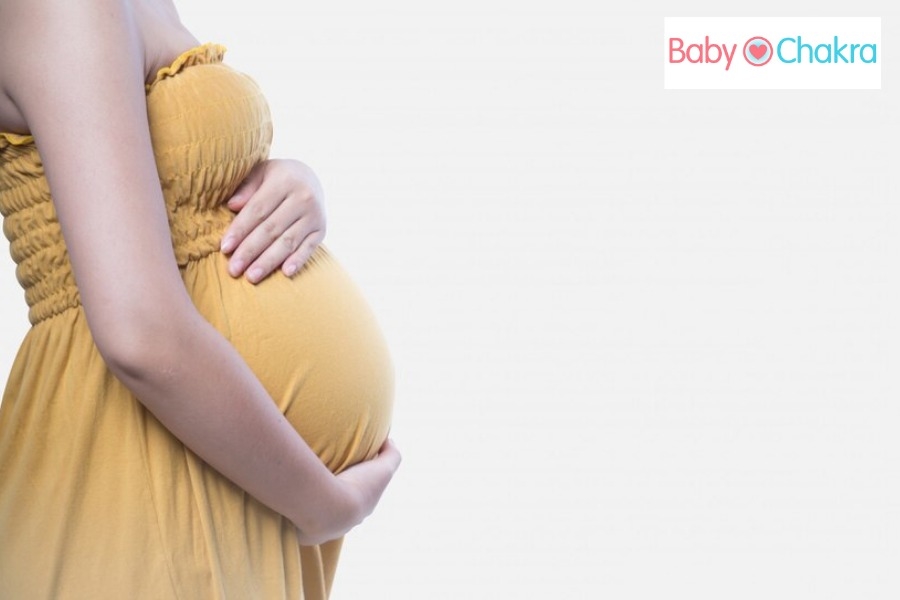
Pregnancy After 40: Everything You Should Know About It
21 Feb 2022 | 4 min Read
Sayani Basu
Author | 607 Articles
Pregnancy is a life-changing experience for any woman and is physically demanding at any age. Women over 40 are said to face an increased risk of miscarriage and stillbirth. In some cases, babies born to mothers over 40 years of age are likely to have chromosome anomalies such as down syndrome. However, this shouldn’t deter you to try, if you are in this age bracket.
Here’s everything you should know about pregnancy after 40.
Risk Of Pregnancy After 40
The good news is that with technological advancements surrounding fertility, pregnancy, and delivery, it is possible to safely have a baby at 40. Since any pregnancy after the age of 40 is considered high risk, your doctor will monitor you and the baby closely for the following:
- High blood pressure, which may increase your risk of a pregnancy complication called preeclampsia
- Gestational diabetes
- Birth defects such as down syndrome
- Miscarriage
- Low birth weight
- Ectopic pregnancy, which sometimes happens with In Vitro Fertilization (IVF)
Women who use fertility drugs or IVF for conception are at a higher risk of twins or multiples because medications increase ovulation.
How To Conceive After 40
The process of conception after 40 is no different. Couple’s will still be advised to have intercourse during the fertile window, which includes the days leading up to ovulation and the day of ovulation.
Using ovulation predictor tests can help pinpoint the release of eggs. Monitoring basal body temperature can also help a woman check whether they have ovulated. This is important because with age, some women may stop ovulating or may not ovulate as frequently.
Although it can take some time to get pregnant regardless of age, if you are over 40 years, things can get complicated. If you have been trying naturally for six months and are still not successful, you might have to go to a fertility specialist.
The specialist will run tests to see if any complicating factors are affecting your ability to get pregnant. These may include ultrasounds to look at your uterus and ovaries or blood tests to check your ovarian reserve.

Motherhood is a bliss and every woman has the urge to give birth to a healthy baby.
If you are experiencing infertility, you can talk to your doctor about the below-mentioned options to help determine if one is right for you:
- Fertility drugs: These help with hormones that enable successful ovulation.
- Assisted reproductive technology (ART): Such technology works by removing eggs and fertilizing them in a lab before inserting them back into the uterus. ART may work for women with ovulation issues and for surrogates.
- Intrauterine insemination (IUI): This process works by injecting sperm into the uterus. IUI is helpful if male infertility is suspected.
What To Expect During Pregnancy After 40?
Women often experience morning sickness during the first trimester of their pregnancy. But that may not be all. There are some other things that you need to be prepared for if you are pregnant during your 40s.
1. The first trimester might be more stressful.
2. Older age carries a higher risk of pregnancy loss, especially for women who previously had miscarriages.
3. You might have more aches and pains due to joints and bones that are already starting to lose mass with age.
4. Pregnancy-related fatigue can also be a possibility as you get older.
Effects Of Age On Labor And Delivery
Vaginal delivery may be less likely after the age of 40 due to fertility treatments that can increase the risk for premature birth. You may also be at an increased risk of preeclampsia which may necessitate a cesarean delivery.

With precautions, women over 40 can have healthy pregnancies.
Even so, having a baby at 40 is not uncommon anymore. Despite the odds it can take to conceive, having children in your 40s has its benefits too. You would be better prepared emotionally, mentally, as well as financially to raise and nurture a child.
You probably know your strengths and weaknesses by 40, better than you did when you were 20. With good care and precaution, healthy women over 40 can have healthy pregnancies despite all these increased risks.
A


Suggestions offered by doctors on BabyChakra are of advisory nature i.e., for educational and informational purposes only. Content posted on, created for, or compiled by BabyChakra is not intended or designed to replace your doctor's independent judgment about any symptom, condition, or the appropriateness or risks of a procedure or treatment for a given person.
